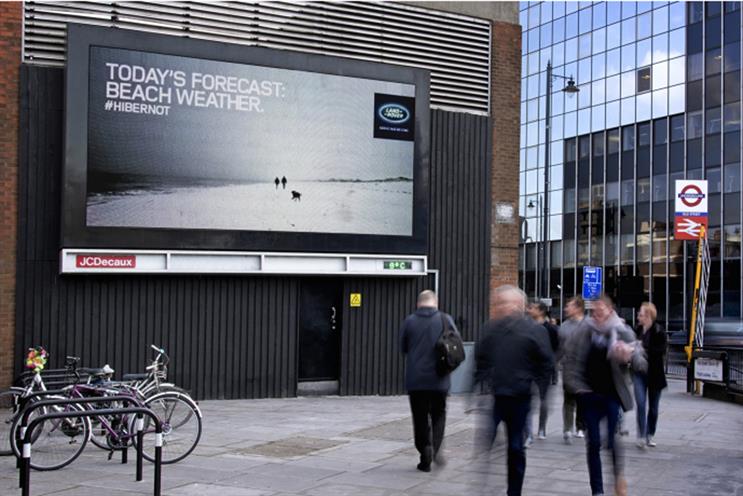Essentially, building brand fame through mass awareness is what sits at the heart of OOH. We don’t pinpoint consumers down to their IMEI number or try to ascertain how many cats they have. In all honesty, if GDPR protects consumers from being followed around the internet by that pair of trainers they searched for two months ago, then I can’t see that as a bad thing.
The beauty of digital OOH campaigns is that there is a vast array of data sets that are highly insightful and relevant but don’t relate to personal data.
On a hot day, syncing weather data with screens that digitally display ads for an ice cream brand’s great new flavour – that just so happens to be on sale nearby – makes a lot of sense. Most people can identify with the desire for something refreshing when it’s hot, without advertisers needing to know their shoe size or hair colour.
OOH advertisers can use data sets like Route to track the footfall of consumers that head towards a supermarket and combine this with another – such as Dunnhumby in our case – to promote the bestselling products at times when they perhaps aren’t selling well.
This "personalisation at scale" is about understanding the mood, tone and factors that will influence personal decisions without being intrusive.
There are a few areas that could pose challenges for us, notably new data capture elements and partnerships with mobile data providers that will enforce compliance when it comes to the data that they collect.
This is because the way OOH media owners use mobile data, as with our other sets, is not invasive and generally utilises insights like anonymised location data for large groups. OOH’s natural aggregated targeting methods provide a useful shield against compliance issues.
We’re still trying to assess the full scope of what data can do in OOH and it’s our responsibility to make sure that brands are offered a range of partners to work with and innovative technologies with which to experiment.
So long as we stick to the core values of building brand fame and mass awareness, OOH will remain a non-intrusive advertising format.
Ben Maher is sales and partnership director at JCDecaux.
Wondering how, or even if, you need to worry about GDPR compliance? Watch out for our series of GDPR Q&A pieces. Got a burning question you'd like answered? Send it to emily.tan@haymarket.com


